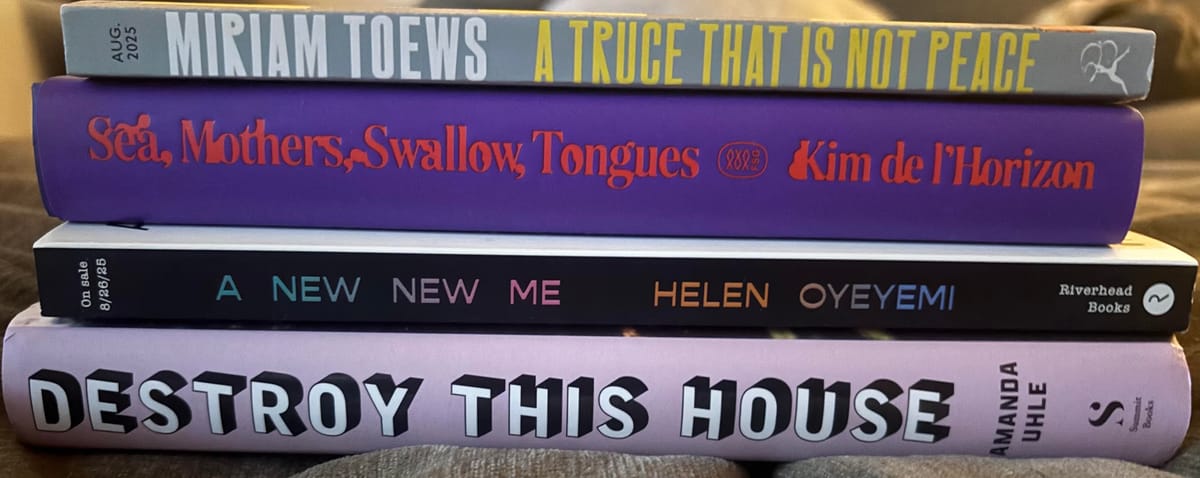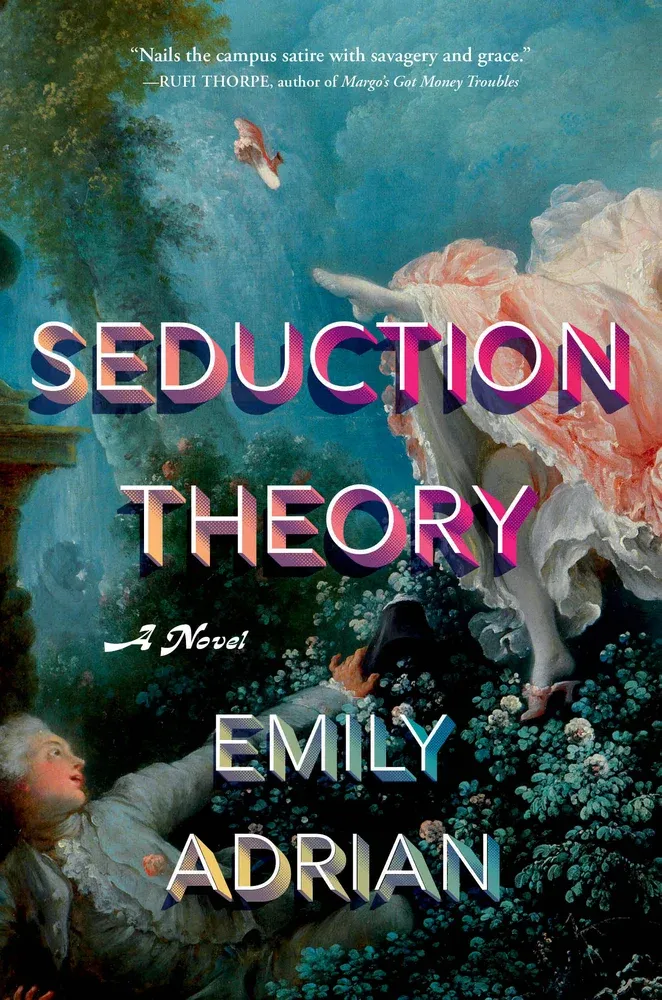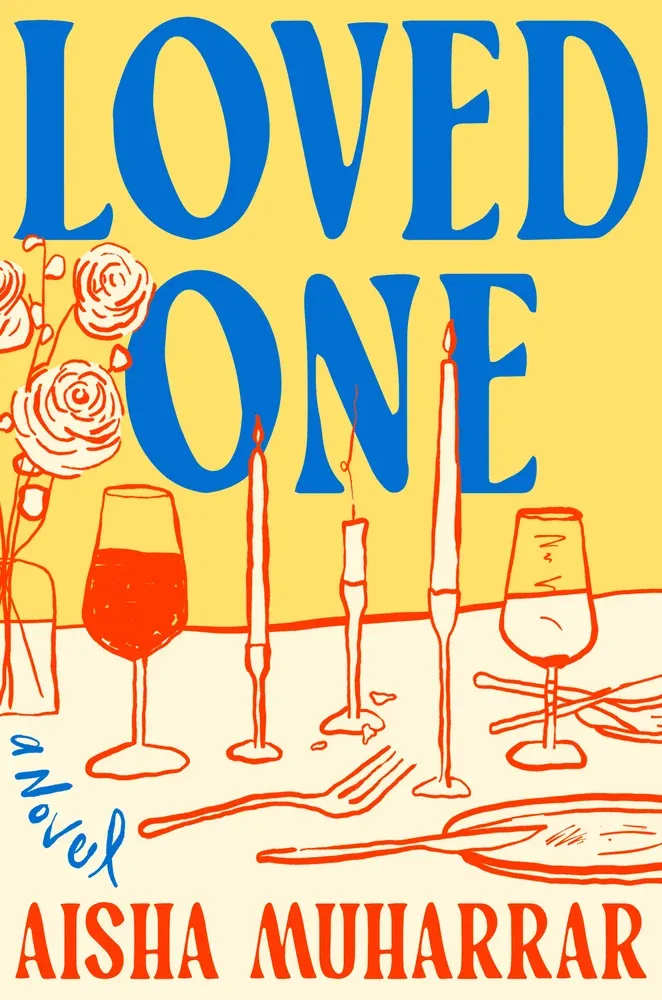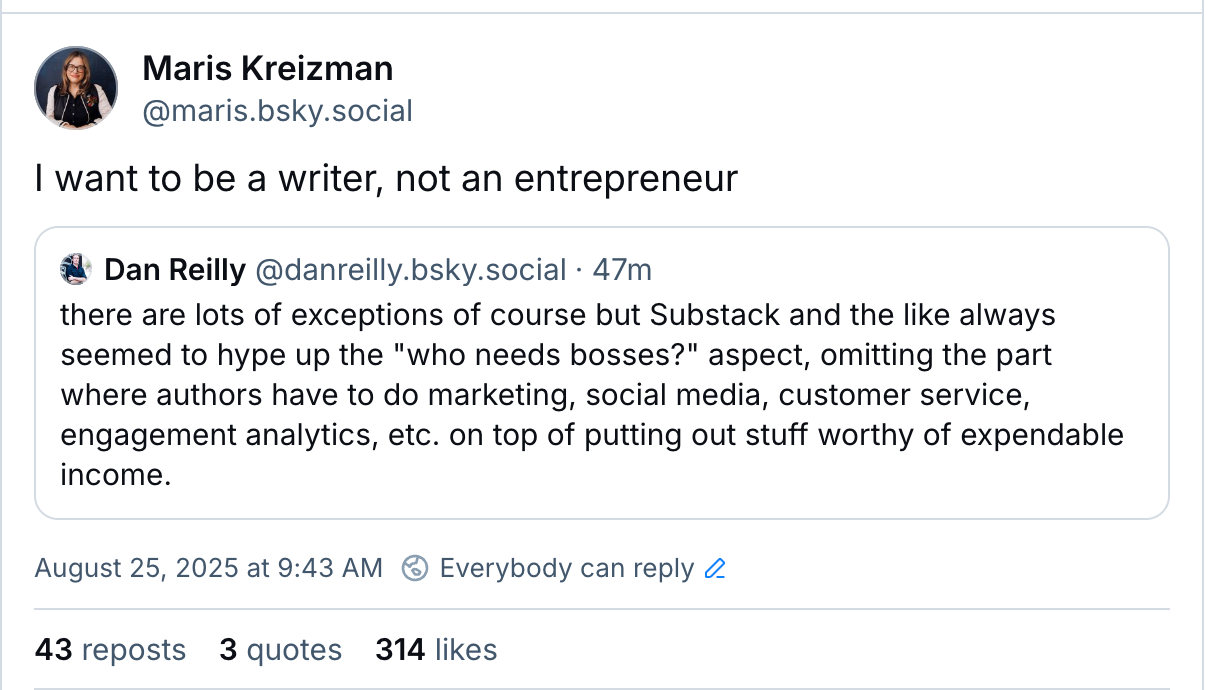The Maris Review, vol 69

Nice.
What I read this week

Seduction Theory by Emily Adrian
I am a sucker for books that treat (or feature characters that treat) love and desire and betrayal as phenomena to be studied using academic tools, the kind you might find in, say, a graduate program in literature. I never got my MFA, but wow, I love the ultra specific campus novels that mock writing programs (and celebrate them, too). Michelle de Kretser's Theory and Practice was a recent favorite, and now we get to add Seduction Theory to the mini-genre.
Seduction Theory is told in the form of a thesis submitted by MFA student Roberta Green in order to meet her degree requirements. Roberta is mostly absent from the first chapters of the book. The star of Robbie's thesis is her Memory as Narrative professor, Simone, the star of fictional Edwards University's creative writing department. Simone's co-star is Ethan, her husband and a lesser esteemed colleague in the Edwards creative writing department. Robbie's thesis tells the story of two affairs, Ethan's affair with the department secretary and then Robbie's own affair (emotional if not entirely consummated) with Simone. Imagine taking an awkward situation and running towards it, getting right into the muck and trying to make art from it.
Why don't I tell you some specific praise, imagined or otherwise, Simone heaps on the work so you can see for yourself what Robbie is going for in her thesis: "What I most admire about the manuscript is the point of view. The occasional emergence of a first-person narrator lends the novel so much texture and, indeed, intimacy. It turns the novel, otherwise narrated from the close-third, into a meditation on perspective itself. Has the author exposed the myth of the neutral narrator?" Yeah, we can't trust Robbie to reliably recount any of the details of the past academic year. It's impossible to know how much of the story Robbie simply imagined, how much Simone relayed to her, how much is autofiction. But who cares when the story is always told with such flourish?
Early in the novel/thesis Simone tells Robbie that all you need are three salient details to aptly depict a party in a story, and there are so many fun examples of Robbie taking this advice throughout the text. This was my favorite: "Behind us, Billy from workshop said 'Don't take my word for it. I'm merely a homosexual with a microblog.' The house smelled like dill and deodorant. 'Dreams' by Fleetwood Mac had played twice."
This is a fun one.

Loved One by Aisha Muharrar
On Sunday night I got to have an IRL chat with Aisha Muharrar after admiring her online for many years. Aisha has worked on some of my favorite comedies – Parks & Rec, Hacks – but I know she's also always been a reader. So I was fairly certain I'd be in good hands with her debut novel, and I'm happy to say I was right.
Loved One opens at a funeral for 29 year-old indie rockstar Gabe (Aisha told me that Gabe was meant to be a Sufjan or Bright Eyes-type). Our protagonist is Gabe's best friend Julia, an art history major turned jewelry designer who may or may not have been harboring romantic feelings for Gabe. It's at the funeral where she first encounters Elizabeth, Gabe's British ex-girlfriend who Julia would like to write off as an outsider, and it's through Julia's eyes that we experience how a sudden death disrupts a narrative and leaves so many unanswered and unanswerable questions in its wake.
When Julia volunteers to try to track down some of Gabe's belongings for his grieving mother, she undertakes a glorified kind of international scavenger hunt. As Julia hunts down Gabe's hat, his bracelet, his guitar, she gets to meet some of the other people who were important in Gabe's life. Julia likes to imagine that she knew Gabe best, but what if one person never has the full story? The novel is a mystery in which detective Julia must gather facts from different people – most prominently, Elizabeth – who knew different things about Gabe. Loved One is like Rashomon but for constructing a life.
Oh, and I know this plot description might sound rather grim, but I assure you it's not. Remember what I said about Aisha's past work? The subject matter is intense, but the tone is utterly enjoyable – rest assured there are jokes galore and enouggh charm to make the whole thing go down easy.
A confession

It hasn't been a great time to be a writer of any sort recently, but this past month was a particularly brutal time to be a critic. Or even to be a person who enjoys reading criticism. With cuts at a variety of major publications, the role of the critic is diminished once again. Last week I linked to Richard Brody's defense of the traditional review; here it is once again. But this week I don't want to talk about why criticism matters, I want to talk about what happens to criticism when traditional media has ruled that such coverage doesn't generate enough clicks.
I subscribe to so many wonderful newsletters and I enjoy writing this one, but I hate that so many of us must "choose" to be our own bosses in order to make any money on writing criticism. Some times it feels truly freeing that I "get to" make all of my own decisions on what to write and how to sell it. But other times, it stinks!
I miss being edited, and I miss editing other writers. At the risk of sounding entirely pathetic, I even miss being part of a work Slack where I can share ideas with a team of people and make fun of bad internet writing. Community is a big part of writing. When we're talking about a loneliness epidemic, real or imagined, with AI coming in to take over the role of your search engine or your partner or best friend, other (human) people matter. Publishing great writing is best when it's a team effort. Yes, it's lovely to ramble on and on here, but I'm fairly certain I'll only continue to grow as a writer with other people's input.
Anyhow.
A good deal
My friend Ana Marie Cox teaches a writing workshop, Third Story, and it's back for fall. Think of it as a guide to memoir writing with just enough structure to be useful. Starts Sept 2. Code TSW10-MARIS gets 10% off: anamariecox.com/workshop
New releases, 8/26

A Truce That Is Not Peace by Miriam Toews
Sea, Mothers, Swallow, Tongues by Kim de l'Horizon
A New New Me by Helen Oyeyemi
Destroy This House by Amanda Uhle
Katabasis by R.F. Kuang





